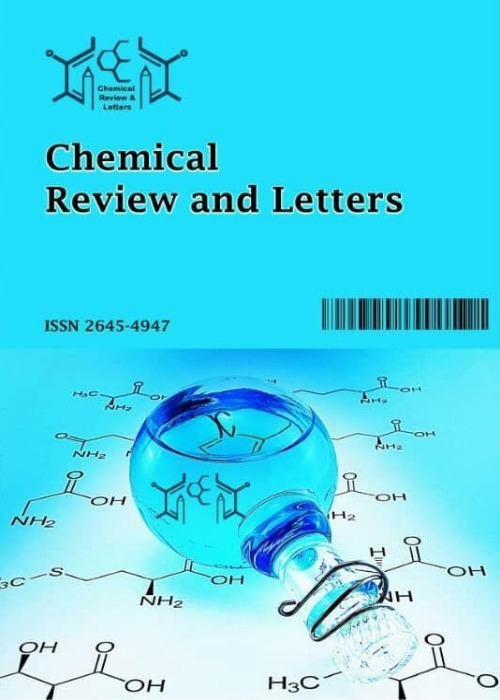Optimization of the Production of Methyl Ester from Used cotton Seed Oil: A Statistical Approach Using Box-behnken Design
Author(s):
Article Type:
Research/Original Article (دارای رتبه معتبر)
Abstract:
Methyl ester is the name given to monoalkyl esters of vegetable and animal oils. Since methyl ester has fuel properties that are comparable to those of diesel fuel, it is becoming more popular as a substitute fuel for use in diesel engines. The amount of free fatty acids (FFA) in the oil determines how methyl ester is produced. In this study, the titration method was used to calculate the FFA values of the crude cottonseed oil (CCSO) and one-time Used Cottonseed Oil (UCSO), with values 0.56 % and 1.26 %, respectively. The UCSO is transformed into methyl ester by employing a heterogeneous alkali catalyzed transesterification reaction. It involves the addition of methanol to bleach and degummed UCSO in the presence of heterogeneous catalysts CaO-blend derived from calcinated eggshells and coconut shell blend. Reaction variables including the methanol-to-oil ratio, reaction temperature, reaction time and catalyst concentration control the transesterification process. The Box-Behnken design was employed to optimize the aforementioned parameters using the response surface methodology (RSM). Numerous factors that affect the generation of biodiesel have been plotted using the response surface plot and contour plot. An optimized UCSO methyl ester yield of 92.00 % was obtained at a 1:10.80 molar ratio, 2.5 wt. % catalyst concentration, 80 minute reaction time, and 60 °C reaction temperature. The experimental yield was 92.10 %, as determined by the optimized yield based on these parameters. This shows that the response surface methodology is a successful strategy for increasing the yield. The regression model proved successful, as observed by the error values between the predicted and actual outcomes being less than 1 % UCSOME conversion. For this study, adequate precision was 8.9518. As a result, the model can be utilized to explore the design space. Each succeeding cycle of reuse produced 91.60 %, 85.50 %, 81.60 %, 78.60 %, 74.20 %, and 72.87 % of the biodiesel. The measurements for viscosity, density, and flash point of UCSO were 33-36 mm2/s at 311 K, 911-916 kg/m3 at 288 K, and 504-510 K, respectively. UCSO methyl ester (UCSOME) had a viscosity between 3.6 and 3.7 mm2/s and a density between 875 and 880 at 311 K. While the flash points of the UCSOME are measured at 435–440 K as opposed to 504-510 K. The saponification value of cottonseed oil was 188.32 mg/g while that of biodiesel was 165.87 mg/g. Thus, biodiesel fatty acid methyl ester possesses a distinctive FTIR absorption of carbonyl (C=0) stretching vibrations near 1740-1744 cm-1 and C-O bending vibrations in the range of 1196 cm-1.
Keywords:
Language:
English
Published:
Chemical Review and Letters, Volume:6 Issue: 2, Spring 2023
Pages:
183 to 212
magiran.com/p2661938
دانلود و مطالعه متن این مقاله با یکی از روشهای زیر امکان پذیر است:
اشتراک شخصی
با عضویت و پرداخت آنلاین حق اشتراک یکساله به مبلغ 1,390,000ريال میتوانید 70 عنوان مطلب دانلود کنید!
اشتراک سازمانی
به کتابخانه دانشگاه یا محل کار خود پیشنهاد کنید تا اشتراک سازمانی این پایگاه را برای دسترسی نامحدود همه کاربران به متن مطالب تهیه نمایند!
توجه!
- حق عضویت دریافتی صرف حمایت از نشریات عضو و نگهداری، تکمیل و توسعه مگیران میشود.
- پرداخت حق اشتراک و دانلود مقالات اجازه بازنشر آن در سایر رسانههای چاپی و دیجیتال را به کاربر نمیدهد.
In order to view content subscription is required
Personal subscription
Subscribe magiran.com for 70 € euros via PayPal and download 70 articles during a year.
Organization subscription
Please contact us to subscribe your university or library for unlimited access!


